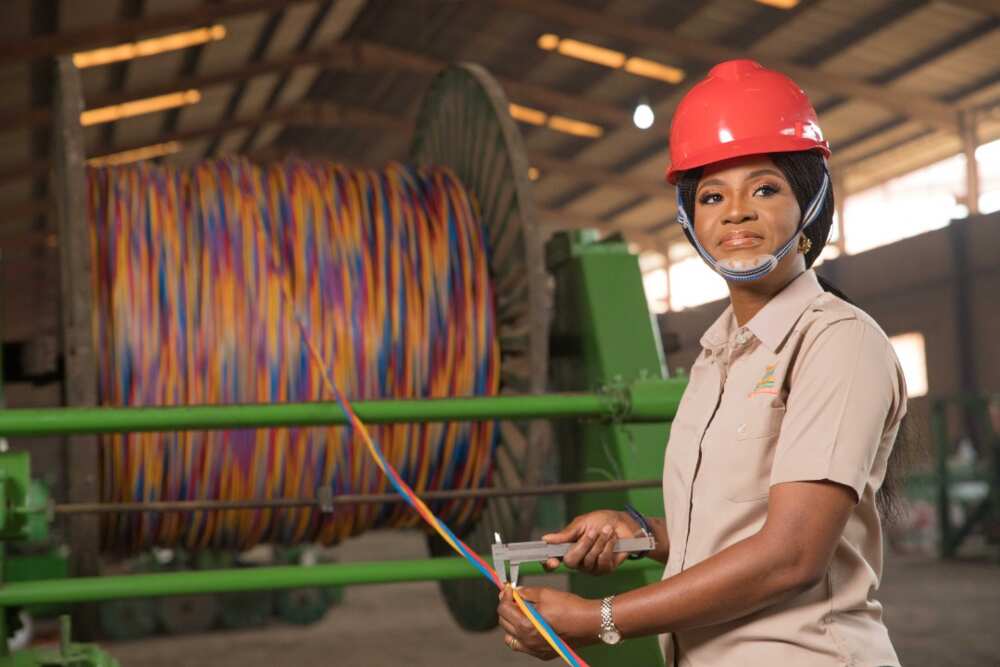Cable Makers Make Case for Support to Increase Nigeria's Foreign Exchange Earnings
- A group of Cable manufacturers association in Nigeria has asked the Nigerian government to increase forex earnings
- According to the group's president, the manufacturing industry in Nigeria depends on forex to survive
- Bukola Adubi said that the country is loosing huge sums of money to inferior cables and urged the government to grant import waivers to manufacturers
PAY ATTENTION: Click “See First” under the “Following” tab to see Legit.ng News on your Facebook News Feed!
An umbrella body for indigenous cable manufacturing companies, The Cable manufacturers Association of Nigeria (CAMAN), has urged relevant agencies of government to work hard to attract more foreign exchange earnings into the country.
The case for forex earnings
CAMAN said that the manufacturing sector in Nigeria is heavily reliant on imports of raw materials and faces a great scarcity of forex. In order to become competitive in the industry around the globe, cable makers need more support to continue to keep the industry standards.

Source: Getty Images
In an interview with newsmen, the recently elected president of the organisation, Bukola Adubi pinpointed sub-standard and inferior cable brands, failure to implement local content laws and non-existent executive orders by some agencies of government including the scarcity of experienced hands in the industry as problems facing manufacturers in the industry.
PAY ATTENTION: Install our latest app for Android, read best news on Nigeria’s #1 news app
Nigeria loosing money to inferior materials
She said several millions of naira are estimated to be lost every year to inferior or substandard cables in the market.
Adubi asked the Nigerian government to support CAMAN by making the clearance of raw materials at the posts easier by providing grants and funding for the upgrade of machinery as well as making provisions for better infrastructure available in the rural areas where the materials are transported from.
She made a case for a duty waiver on raw materials for CAMAN, describing it as a product of financing and competitiveness, saying that if an accredited manufacturer is given waiver on their raw materials, it will make them competitive and enable them to be able to compete with Asian other European imports.
The case of import duty waiver
Making a case for duty waiver on raw materials for CAMAN, Adubi described duty waiver as an offshoot of financing and competitiveness, adding that if an accredited manufacturer is given waiver on their raw materials, it will make them competitive and enable them to be able to compete with Asian and other European imports.
To deepen local content across industries in Nigeria, the President Muhammadu Buhari led government had signed Executive Order 3 (EO3) and Executive Order 5 (EO5) in 2017 and 2018 respectively. Speaking on how the EO3 and EO5, as well as the local content laws have aided the operations of cable manufacturers, she commended the Nigerian Content Development and Monitoring Board (NCDMB) for its efforts in the implementation of the Nigerian Oil and Gas Industry Content Development (NOGICD) act and encouraged other bodies like the Transmission Company of Nigeria (TCN), and Rural Electrification Agency (REA), among others to follow suit.
She said:
"I emphasize on CAMAN members because these are the companies that we can vouch for and they are the ones that are responsible for the fantastic reputation of the cable industry in Nigeria today.
"We would love an avenue to sit and engage with them to see how we can begin to enjoy this relationship going forward."
Low income of Nigerian households major reason for housing deficit, expert says
Legit.ng has reported that the low income earned by key members of households in Nigeria has been identified as the major contributor to the housing deficit in the country.
With Nigeria estimated to have a population of about 200 million people, 30 per cent of the Nigerian population still struggle with quality shelter says, Uzo Onukwubiri, the managing director of Sow Real Estate says.
Onwukwubiri said the high number of Nigerians struggling to access decent housing implies that urgent attention should be placed on the country’s housing sector.
Source: Legit.ng



